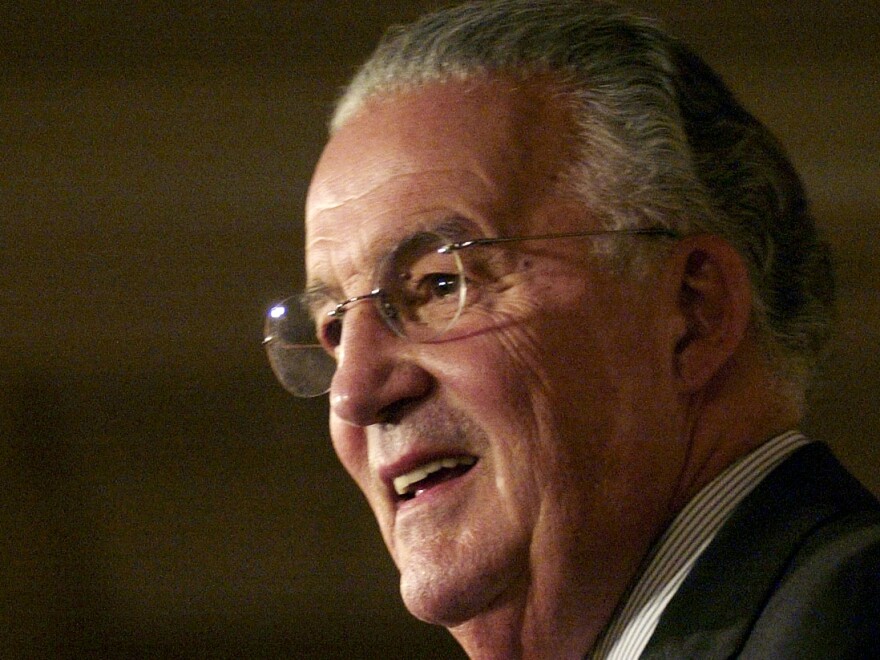Former Sen. Paul Sarbanes, who spent three decades representing Maryland in the Senate, has died in Baltimore at the age of 87.
His son, Rep. John Sarbanes, did not disclose a cause of death in his brief statement announcing the news, noting only that his father "passed away peacefully" on Sunday evening.
The longtime Democratic politician, known as much for his understated demeanor as a late-career push to reform corporate oversight, was mourned widely by lawmakers on both sides of the aisle Monday.
"There was no one sharper, more committed, or with firmer principles," President-elect Joe Biden tweeted, saying that he and Paul Sarbanes had served together on the Senate Foreign Relations Committee. "And he, too, returned to his family nearly every night. They meant the world to him."
Maryland's Republican governor, Larry Hogan, said that he would order the state's flag flown at half-staff for Sarbanes, whom he called a "sincere and passionate advocate for our state and its natural resources."
Senator Paul Sarbanes was a sincere and passionate advocate for our state and its natural resources. Today, we mourn his loss and send our deepest sympathies to his family.
— Governor Larry Hogan (@GovLarryHogan) December 7, 2020
My full statement: pic.twitter.com/HJtOKgG0rt
There is perhaps no better way to express the length and variety of Sarbanes' tenure in Congress — six years in the House of Representatives and another 30 in the Senate — than to point out the role his legislation played in the major events that nearly bookended it: President Nixon's downfall and Enron's accounting scandal.
As a member of the House in 1974, Sarbanes was enlisted by his fellow Democrats to compose the first of three articles of impeachment against Nixon, which charged the embattled president with obstruction of justice. The Judiciary Committee approved the measure, but Nixon ultimately resigned before the full House held a vote on impeachment.
A different fate awaited the legislation Sarbanes helped compose after Enron's collapse. The energy giant and its accounting firm, Arthur Andersen, had misled investors in a massive fraud that ended in Enron's 2001 bankruptcy — then the largest in history — and extensive prison time for Enron's chief executive.
"It was the canary in the mine shaft," Sarbanes told NPR in 2009. "You had a number of major companies engaged in convoluted, often fraudulent, accounting schemes to inflate their earnings, to hide their losses and to drive up their stock prices."
So, under the Sarbanes-Oxley Act of 2002, Sarbanes and his Republican co-author, Rep. Michael Oxley of Ohio, overhauled federal financial regulations and set up an independent oversight board aimed at combating shady accounting practices. The law signed by President George W. Bush later survived a Supreme Court challenge, albeit with a few changes.
In a statement Monday, House Speaker Nancy Pelosi described the 2002 law as "landmark legislation that to this day helps hold bad financial actors accountable for fraud and abuse: a powerful testament to his commitment to working people that leaves an enduring legacy."
The son of Greek immigrants, Sarbanes attended public schools and went on to Princeton University, Oxford University as a Rhodes scholar and Harvard Law School.
Sarbanes decided to retire rather than seek a sixth term in the 2006 election. His wife of 48 years, Christine, died in 2009.
John Sarbanes, who now represents the Maryland congressional district that once elected his father, said the family plans to hold a private service "following state, local and public health guidance amid the COVID-19 pandemic."
Copyright 2021 NPR. To see more, visit https://www.npr.org.



